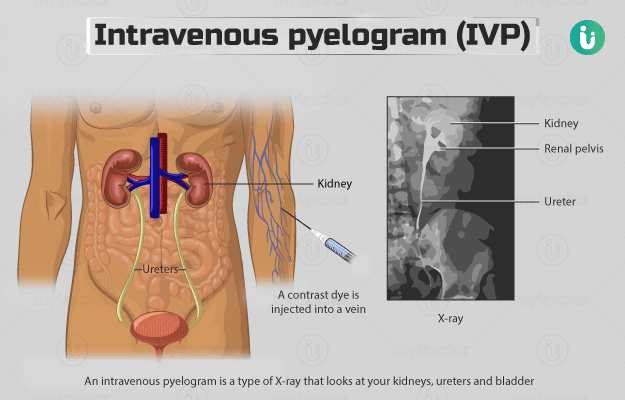What is an IVP X-ray?
An intravenous pyelogram (IVP) is a type of X-ray that looks at your kidneys, ureters (tubes that carry urine from the kidneys to the bladder) and bladder (the organ that stores urine). It can also capture images of the prostate gland (a reproductive gland located below the bladder) in men.
In this test, a contrast dye is injected into a vein in the arm of the person. Kidneys, ureters and the bladder appear bright white on the X-ray images as the dye moves through the urinary tract. The images help the doctor view the structure and function of these organs and identify problems in the urinary tract.











































